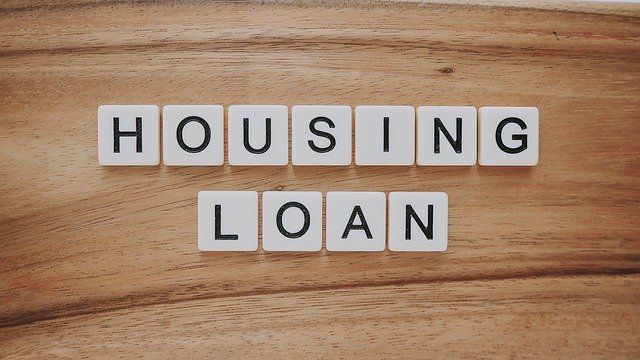Unlock Homeownership in 2025: Bad Credit Housing Financing Solutions Explained
Navigating the realm of bad credit housing financing might feel daunting, but it's essential to know you're not without options. Subprime mortgage options and government-backed loans such as FHA or VA provide pathways for those with challenging credit histories. Consulting with financial advisors and exploring local credit union offers can reveal opportunities often overlooked. Strategic approaches, like larger down payments, can mitigate higher interest rates typically associated with bad credit...

The mortgage application process involves comprehensive evaluation of financial factors including credit history, income, employment, debts, and assets. Lenders make approval decisions based on their individual underwriting standards, which vary across institutions and loan programs. Understanding how different mortgage products function and what they typically require helps prospective buyers research their options, though meeting stated minimums does not guarantee loan approval.
What Are Bad Credit Home Loans?
Bad credit home loans is a general term for mortgage products that may consider applicants with credit scores below conventional lending standards, typically under 620. These products acknowledge that credit scores represent one component of financial assessment. Credit histories can be affected by various circumstances including medical expenses, employment disruptions, or past financial challenges.
Several loan types have different credit score considerations in their published guidelines. FHA loans, which are insured by the Federal Housing Administration, publish minimum credit score requirements of 500 or 580 depending on down payment, though individual lenders often set higher thresholds and approval remains discretionary. VA loans for eligible military members have no published minimum from the VA itself, though lenders set their own standards. USDA loans for properties in designated areas have their own published criteria. Some lenders offer non-conventional products with varying standards. Meeting published minimums does not ensure approval, as lenders evaluate complete financial profiles.
How Do Subprime Mortgage Options Work?
Subprime mortgages refer to loans offered to borrowers who may not meet prime lending criteria due to credit profile, income verification challenges, or debt levels. These loans generally involve higher interest rates that reflect perceived lending risk. The subprime lending market operates under different regulations than before the 2008 financial crisis.
Lenders offering these products use various evaluation methods. They may review employment duration, rental payment records, utility payment history, assets, and financial patterns. Down payment expectations often exceed conventional loan standards, sometimes requiring 10 to 20 percent or more. Interest rates on these products can be substantially higher than conventional mortgage rates, increasing both monthly payments and total interest costs over the loan term. Borrowers should carefully review all loan terms, compare options, and understand the full cost implications before making decisions.
What Are Poor Credit Housing Finance Strategies?
Researching mortgage options with credit challenges involves preparation and realistic assessment of individual circumstances. Obtaining credit reports from major bureaus allows review for potential errors that might be disputed through established processes. Addressing outstanding debts and managing debt-to-income ratios are common preparation steps, though outcomes depend on individual financial situations.
Increasing savings for down payments may expand available options, as larger down payments reduce loan-to-value ratios. Some applicants consider adding a co-borrower, which creates joint legal and financial obligations. Comparing offerings from multiple lenders is important since underwriting standards, available products, and pricing differ across institutions. Mortgage professionals can provide information about various loan types and lender requirements, though they cannot guarantee approval, specific terms, or rates for any individual application.
Are There Specific Mortgage Loans for Bad Credit?
Different mortgage programs have different published credit requirements, though individual lender overlays often exceed program minimums. FHA loans publish minimum credit scores of 500 with 10 percent down payment or 580 with 3.5 percent down payment, but many FHA-approved lenders require scores of 600 or higher. Meeting these minimums does not guarantee approval, which depends on comprehensive financial review.
VA loans, available to eligible veterans and active duty service members, have no minimum credit score requirement from the Department of Veterans Affairs itself, though individual lenders establish their own minimums that vary widely. USDA loans for properties in eligible areas have published guidelines that include credit considerations along with geographic and income restrictions. Non-qualified mortgages represent products designed for borrowers with non-traditional income documentation or other circumstances, though availability, terms, and rates vary significantly by lender and market conditions. All loan approvals remain at lender discretion regardless of program type.
Understanding Loan Program Characteristics
Different loan programs have different published guidelines, though actual lending decisions depend on individual lender policies and complete application review. The following table outlines general program characteristics based on published guidelines, not guaranteed terms:
| Loan Program Type | Published Minimum Credit Score | Standard Down Payment Range | Key Considerations |
|---|---|---|---|
| FHA Loans | 500-580 (lender overlays often higher) | 3.5-10% | Requires mortgage insurance premiums |
| VA Loans | No VA minimum (lender-specific) | 0% in some cases | Eligibility requirements, funding fee applies |
| USDA Loans | Program guidelines vary | 0% in some cases | Geographic restrictions, income limits |
| Non-QM Loans | Lender-specific | Often 10-20% or higher | Alternative documentation, typically higher rates |
| Conventional Loans | Typically 620+ | 3-20% | Private mortgage insurance under 20% down |
Prices, rates, or cost estimates mentioned in this article are based on the latest available information but may change over time. Independent research is advised before making financial decisions.
How Can You Qualify for a Low Credit Score Mortgage?
Mortgage qualification involves meeting lender-specific criteria that extend well beyond credit scores. Lenders typically evaluate employment history, generally preferring documentation of consistent income over time. Required documentation commonly includes recent pay stubs, tax returns, and W-2 forms. Self-employed applicants usually need additional documentation including business tax returns and financial statements.
Debt-to-income ratio represents a significant factor in lending decisions. This calculation compares monthly debt obligations to gross monthly income. Different loan programs publish different maximum DTI guidelines, though lenders may accept or require lower ratios based on overall application strength. Cash reserves demonstrating ability to make payments beyond closing can be a factor in underwriting decisions. Some loan programs require completion of homebuyer education courses, particularly for first-time buyers. Each lender maintains its own complete set of underwriting guidelines beyond published program minimums.
Important Considerations
Researching mortgage options with credit challenges requires understanding that loan approval is never guaranteed and depends on comprehensive evaluation by individual lenders. Interest rates and fees for loans with lower credit requirements typically exceed conventional mortgage pricing, substantially affecting both monthly payments and total costs over the loan term. Each lender maintains distinct underwriting standards, available products, and pricing structures that change based on market conditions. Published minimum requirements represent starting points only and do not indicate approval likelihood for any individual. Borrowers should obtain information from multiple sources, review all terms thoroughly, and consult with licensed financial professionals to understand options appropriate to their specific circumstances. Any statements about loan programs reflect general information and should not be interpreted as guaranteed availability or terms.




